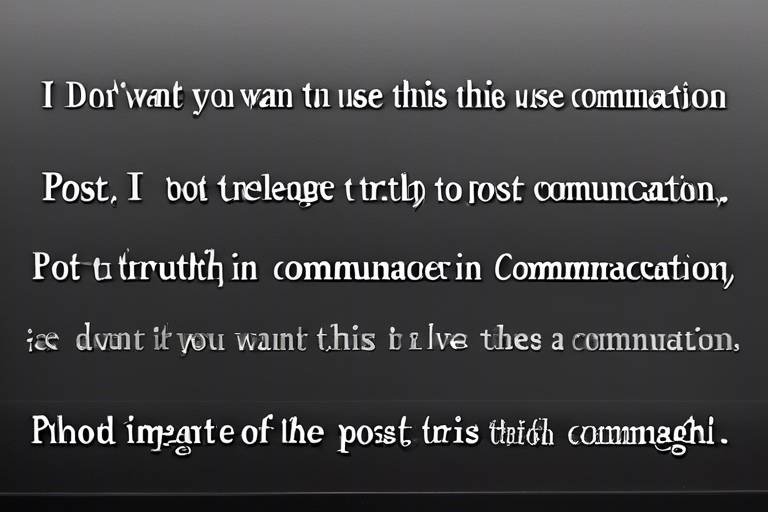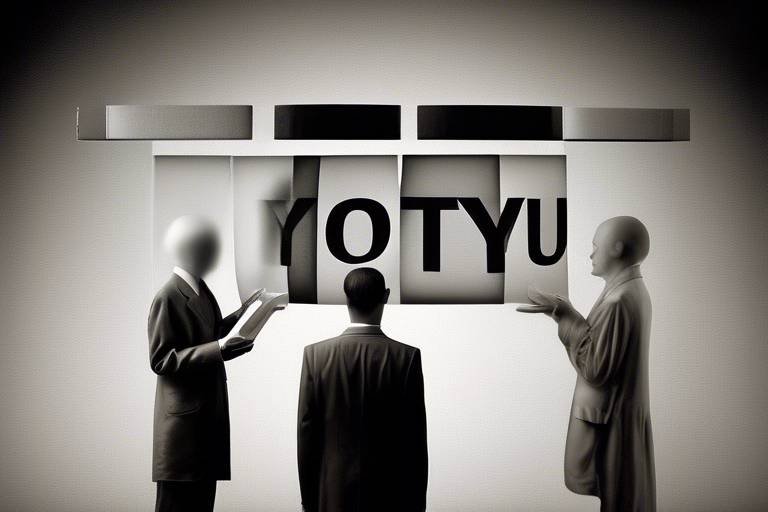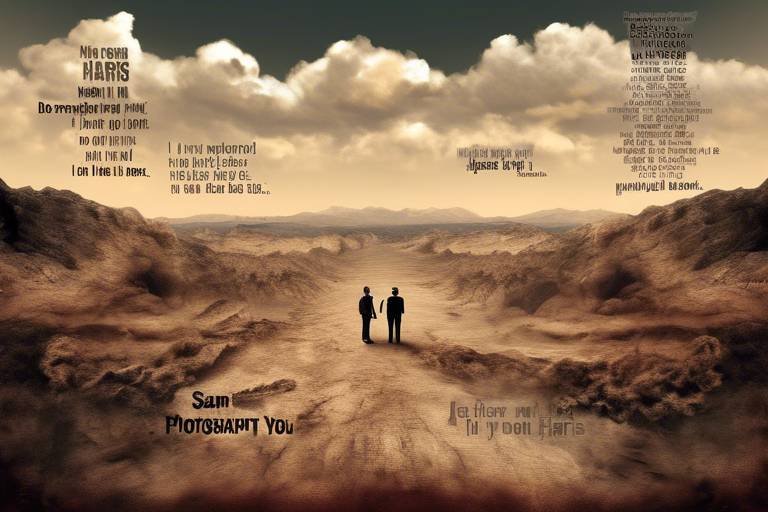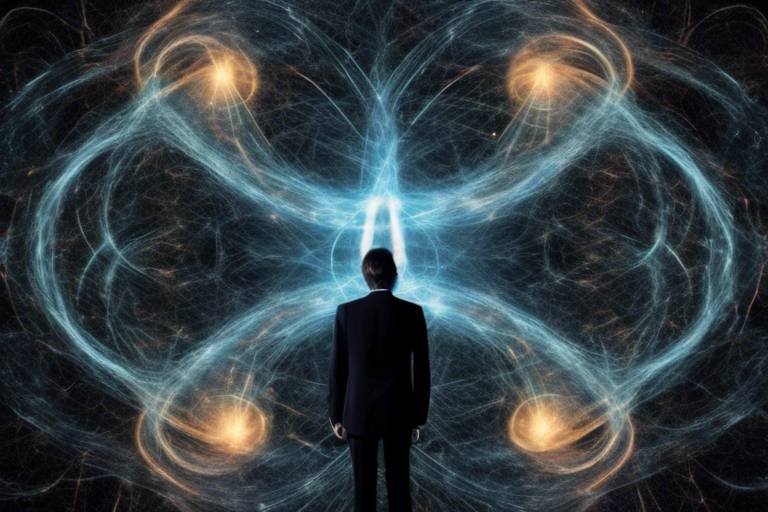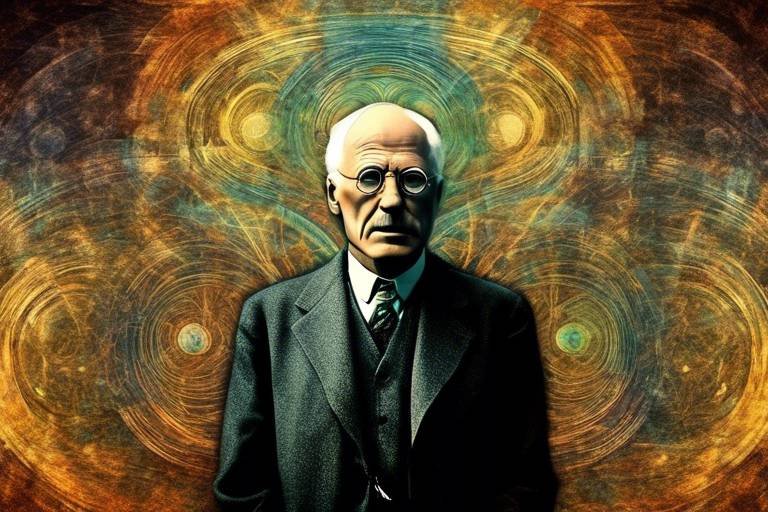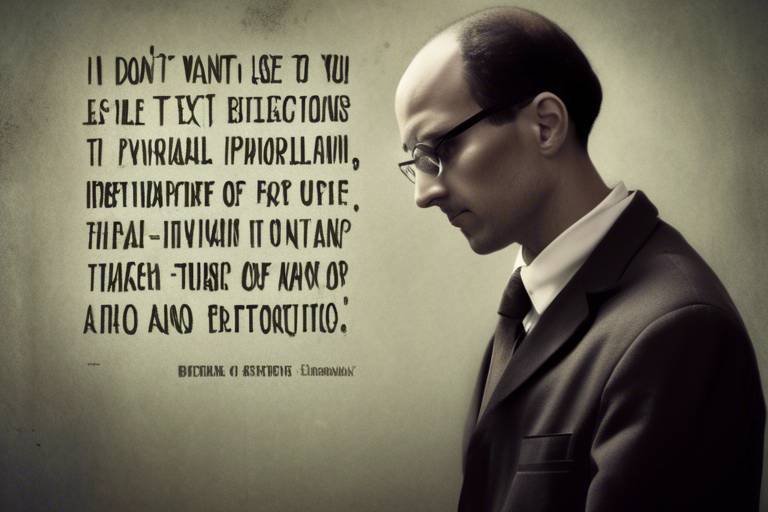Are We Living in a Simulated Universe?
Have you ever caught yourself staring at the stars and wondering if there's more to reality than meets the eye? The idea that we could be living in a simulated universe is not just a plot twist in a sci-fi movie; it's a fascinating concept that's been gaining traction in philosophical and scientific circles. Imagine for a moment that everything you perceive—your thoughts, emotions, and even the laws of physics—might be nothing more than lines of code in a vast computer program. It sounds outrageous, right? Yet, this notion has sparked a serious debate about the very nature of existence.
The simulation hypothesis suggests that our reality might be an artificial construct created by a more advanced civilization. This thought experiment raises profound questions: If we're living in a simulation, what does that say about our understanding of reality? Are our experiences genuine, or are they merely programmed responses? As we dive deeper into this topic, we will explore various philosophical arguments, scientific theories, and technological advancements that support or challenge the idea of a simulated universe.
One of the most compelling aspects of this discussion is how it intertwines with the evolution of technology. As virtual reality and artificial intelligence continue to advance, the lines between what is real and what is simulated become increasingly blurred. Imagine putting on a VR headset and feeling as if you've been transported to another world—what if that world is just as real as the one we inhabit? This article will guide you through the labyrinth of ideas surrounding the simulation hypothesis, from philosophical musings to scientific inquiries, and ultimately, to the implications of our rapidly advancing technology.
So, buckle up as we journey into the depths of this mind-bending concept. Are we merely players in a grand simulation, or is there a deeper reality waiting to be uncovered? Let's find out!
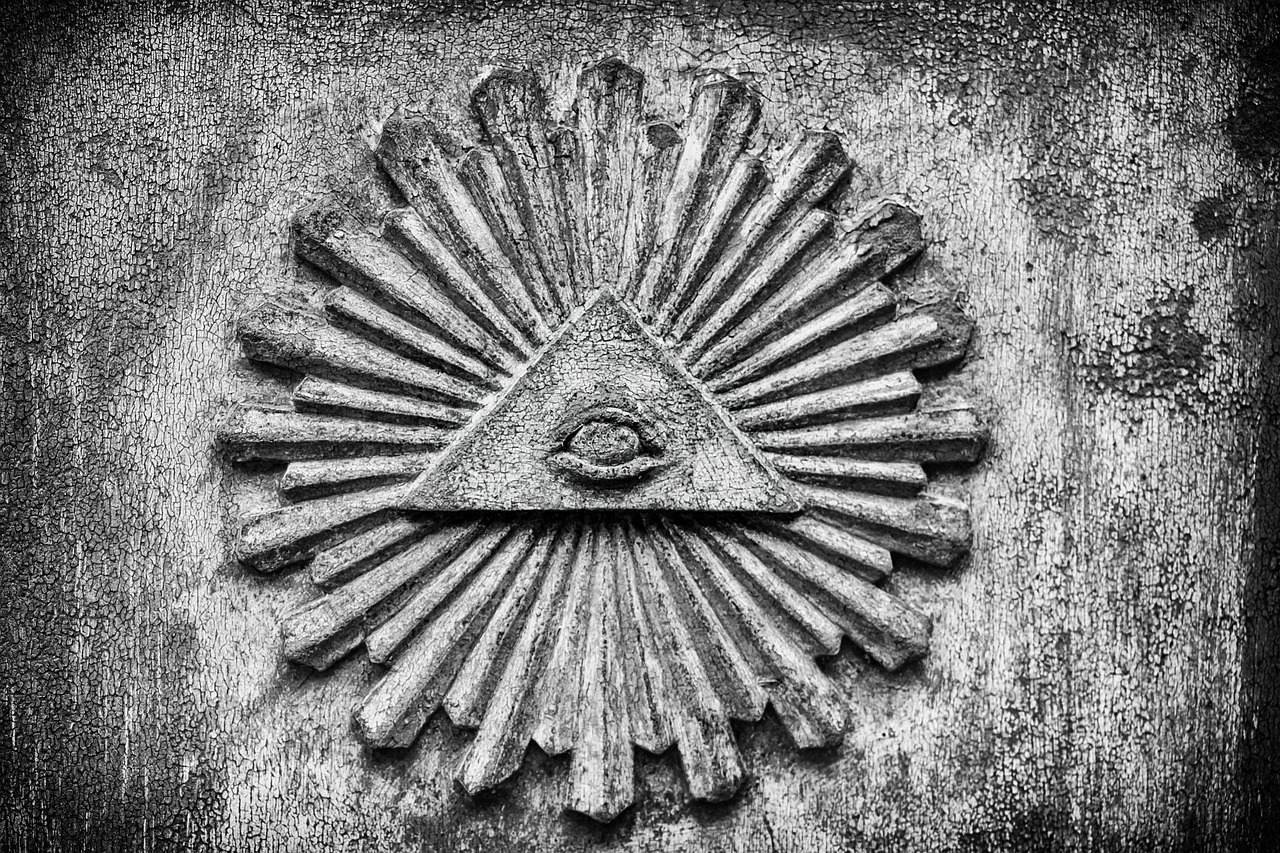
The Simulation Hypothesis
The simulation hypothesis is a captivating idea that suggests our entire existence might be nothing more than a highly advanced computer simulation. Imagine living in a world where everything you see, touch, and feel is part of a meticulously crafted digital environment. This concept has gained traction not just in the realms of science fiction, but also among serious philosophers and scientists who ponder the very nature of reality. So, what exactly is the simulation hypothesis, and why does it matter?
At its core, the simulation hypothesis posits that if it is possible for a civilization to create a simulation indistinguishable from reality, then it is likely that we are currently living in such a simulation. This line of thought was popularized by philosopher Nick Bostrom in 2003. He argued that one of the following must be true:
- Humanity will go extinct before reaching a posthuman stage capable of creating such simulations.
- Posthuman civilizations will not be interested in running simulations of their evolutionary history.
- We are almost certainly living in a computer simulation.
This hypothesis raises profound questions about our existence. If we are indeed living in a simulation, what does that mean for our understanding of consciousness, free will, and the universe itself? Are we mere avatars in a grand digital game, or do we possess genuine agency? The implications are so vast that they can be overwhelming, yet they invite us to explore deeper philosophical inquiries into the nature of reality.
Moreover, the idea of living in a simulation isn't just a philosophical exercise; it intersects with advancements in technology. As we continue to develop increasingly sophisticated virtual realities and artificial intelligence, the line between what is real and what is simulated becomes increasingly blurred. For instance, consider the rapid evolution of video games—from simple pixelated graphics to hyper-realistic environments that can evoke genuine emotions. If we can create such immersive experiences, it begs the question: how far are we from creating a reality indistinguishable from our own?
In addition to technological advancements, the simulation hypothesis also challenges our understanding of consciousness. What if our thoughts and feelings are merely coded responses within a complex algorithm? This notion can be unsettling, yet it opens up a fascinating dialogue about the essence of being. Are we the creators of our own reality, or are we simply responding to stimuli designed by an unseen programmer?
As we delve deeper into this hypothesis, we find ourselves grappling with the very fabric of existence. The simulation hypothesis invites us to question everything we know about life, urging us to explore the boundaries of our understanding. Whether or not we are living in a simulation, the pursuit of these questions can lead to profound insights about our place in the universe and the nature of reality itself.
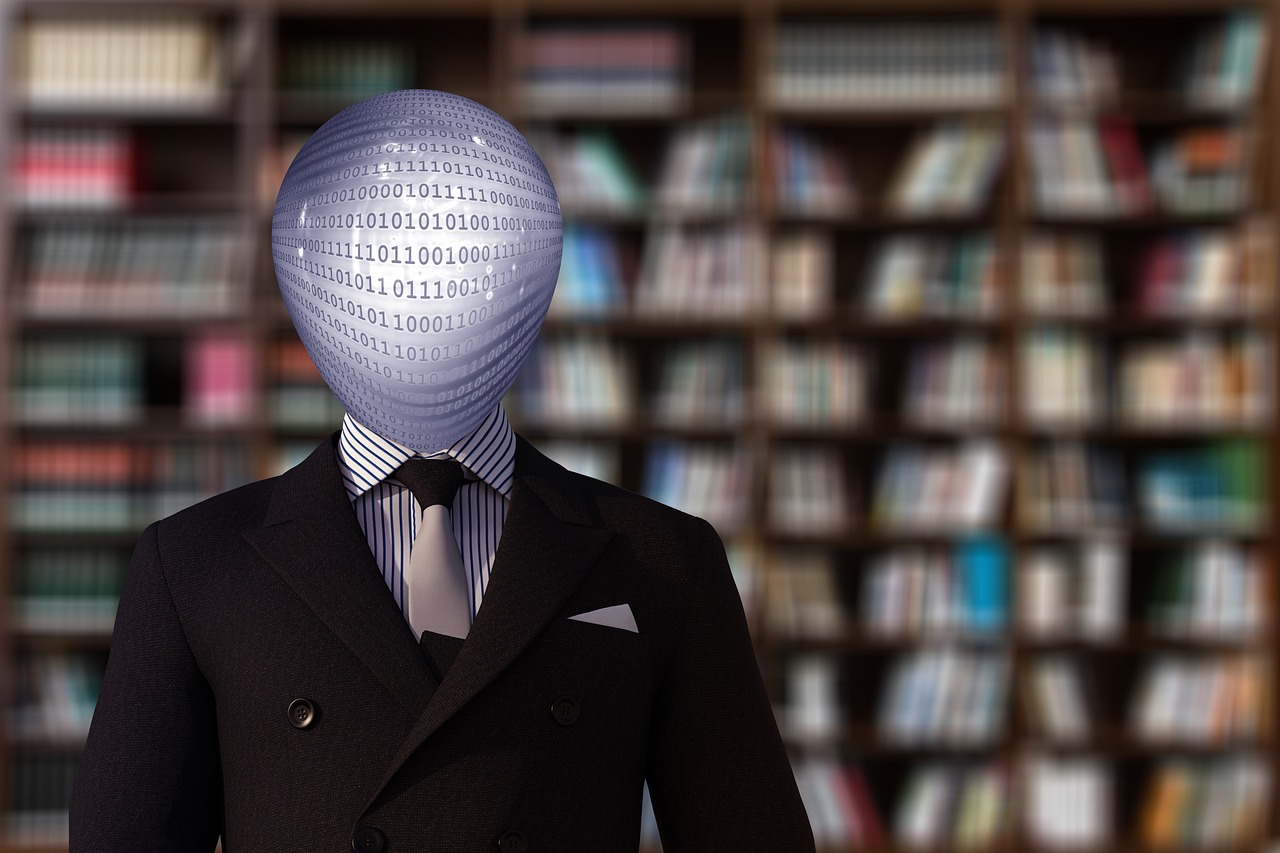
Philosophical Perspectives
The exploration of whether we are living in a simulated universe opens up a fascinating dialogue in the realm of philosophy. Think about it: if our reality is indeed a simulation, what does that say about our existence? Various philosophers have touched upon this theme, each adding layers of complexity to our understanding of reality. Let's dive into some of these perspectives, starting with the renowned skeptic, René Descartes, whose ideas still resonate in today’s discussions.
René Descartes, a towering figure in Western philosophy, famously questioned the very nature of reality in his quest for certainty. His skepticism leads us to ponder: can we truly trust our senses? In a world where our experiences could be fabricated, like a digital illusion, Descartes’ musings become even more relevant. He famously stated, “I think, therefore I am,” suggesting that the very act of thinking is proof of one's existence. But what if our thoughts are merely programmed responses in a vast simulation?
One of Descartes’ most intriguing thought experiments is the concept of the "Evil Demon." This hypothetical being could manipulate our perceptions, making us believe in a reality that is entirely false. Imagine waking up every day believing you’re in a vibrant, bustling city, only to find out it’s all a carefully crafted illusion. This idea mirrors contemporary discussions about simulations, suggesting that our experiences could be controlled by a higher power or advanced technology. It raises the question: if our perceptions can be manipulated, how can we discern what is real?
Fast forward to today, and we see how modern philosophers have built upon Descartes’ foundational ideas. With advancements in technology, particularly in artificial intelligence and virtual reality, the lines between what is real and what is simulated continue to blur. Philosophers argue that these technologies challenge our traditional understanding of existence. If we can create lifelike simulations, then what’s to say we aren’t already part of one? The implications are profound, suggesting that our reality might just be a sophisticated program running on an unseen server.
Adding to the philosophical dialogue is Nick Bostrom’s simulation argument, which posits that if advanced civilizations have the capability to create highly detailed simulations, the likelihood that we are living in one increases significantly. Bostrom's argument can be summarized in three propositions:
| Proposition | Description |
|---|---|
| 1 | Almost all civilizations at our level of technological development go extinct before becoming technologically mature. |
| 2 | Almost all technologically mature civilizations lose interest in creating simulations of their evolutionary history. |
| 3 | We are almost certainly living in a computer simulation. |
This framework challenges us to reconsider our assumptions about reality. If Bostrom is correct, then it's not just a philosophical curiosity; it’s a serious consideration of our place in the universe. It leads us to ask: what does it mean to be conscious in a simulated world? Are our thoughts and emotions just lines of code, or do they hold deeper significance?
In conclusion, the philosophical perspectives surrounding the simulation hypothesis not only challenge our understanding of reality but also provoke deeper questions about existence, consciousness, and the nature of truth. As we advance technologically, these discussions become increasingly relevant, inviting us to reflect on what it truly means to be alive in a world that may not be as it seems.
- What is the simulation hypothesis? The simulation hypothesis suggests that our reality might be an artificial construct, possibly created by advanced civilizations.
- Who proposed the simulation argument? Nick Bostrom, a philosopher, proposed the simulation argument, positing that if advanced civilizations can create simulations, it’s likely we are living in one.
- How does Descartes' skepticism relate to the simulation hypothesis? Descartes' skepticism questions the reliability of our senses, which parallels the idea that our perceptions could be manipulated in a simulated reality.
- What role does technology play in the simulation hypothesis? Advances in virtual reality and artificial intelligence raise questions about the nature of existence and whether we could create or are already living in simulations.
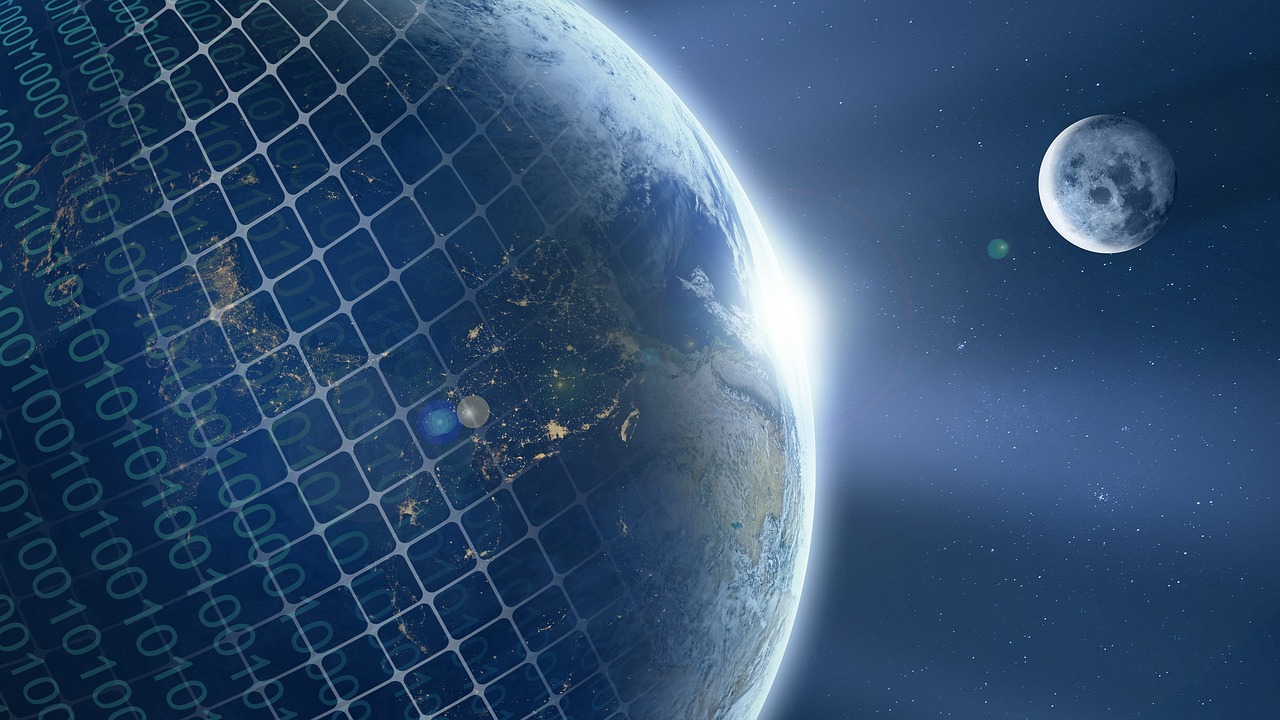
Descartes and Skepticism
René Descartes, a towering figure in philosophy, is perhaps best known for his revolutionary approach to understanding reality. His famous declaration, "Cogito, ergo sum" (I think, therefore I am), serves as a cornerstone for his exploration of existence and knowledge. Descartes was deeply skeptical about the nature of reality, prompting him to question everything he believed to be true. Imagine standing on a shaky foundation; would you not question the solidity beneath your feet? This is precisely what Descartes did—he sought to dismantle all preconceived notions to find an unshakeable truth.
One of Descartes' most fascinating thought experiments is the concept of an evil demon. In this scenario, he posits that a malicious entity could be deceiving us, manipulating our perceptions to make us believe in a reality that is, in fact, an elaborate illusion. This idea resonates with the modern simulation hypothesis, where we ponder whether our experiences are orchestrated by an advanced intelligence. Could it be that our senses, which we rely on to interpret the world, are merely puppets in a grand cosmic play?
To illustrate Descartes' skepticism, consider the following points:
- Perception vs. Reality: How can we trust our senses when they can be easily fooled? Think of optical illusions; they reveal how our brain can misinterpret visual information.
- Dream Argument: Descartes famously questioned whether we could distinguish between being awake and dreaming. If dreams can feel so real, how can we be certain that our waking life isn't just another dream?
- The Role of Doubt: Descartes believed that by doubting everything, we could eventually arrive at undeniable truths. This method of radical doubt is foundational in epistemology, the study of knowledge.
Descartes' exploration of skepticism is not just an academic exercise; it invites us to reflect on our own perceptions of reality. In a world increasingly dominated by technology and virtual experiences, his insights are more relevant than ever. As we navigate through layers of information and digital landscapes, we might find ourselves questioning: Are we truly experiencing the world as it is, or are we merely participants in a simulation, much like Descartes' hypothetical victims of the evil demon?
In contemporary discussions, Descartes' ideas have sparked a wave of philosophical inquiry. Modern philosophers build upon his skepticism, considering how advancements in technology, particularly in artificial intelligence and virtual reality, challenge our understanding of what is real. The lines between reality and simulation blur, prompting us to ask if our experiences are genuine or just sophisticated fabrications. As we delve deeper into these discussions, we must remember that skepticism is not merely doubt; it is a powerful tool that encourages us to seek clarity in a world filled with uncertainty.
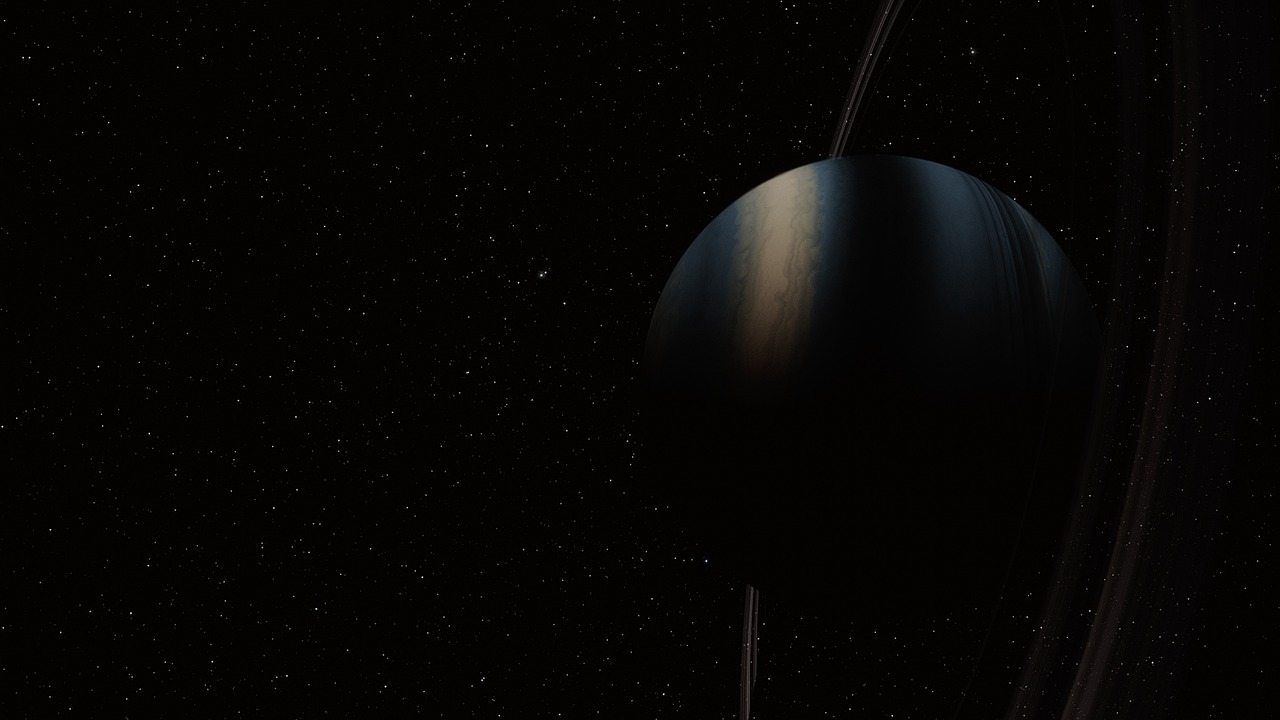
The Evil Demon
René Descartes, the father of modern philosophy, introduced a thought experiment that has reverberated through the ages, known as the "Evil Demon" hypothesis. Imagine, if you will, a malevolent entity that has the power to manipulate your perceptions, creating an entirely fabricated reality. This concept raises profound questions about the nature of existence and whether we can truly trust our senses. Just like a master illusionist, this demon could deceive us into believing in a world that is nothing more than a complex ruse.
The implications of this idea are staggering. If we consider that our reality could be orchestrated by an unseen force, it forces us to confront the unsettling possibility that everything we perceive might be a mere illusion. This notion parallels modern discussions about simulations, where advanced technology could create experiences indistinguishable from "real" life. In both scenarios, the line between reality and deception becomes increasingly blurred.
To illustrate Descartes' argument, let's break it down into a few key points:
- Perception vs. Reality: How can we differentiate between what is real and what is an illusion?
- The Nature of Existence: If our experiences can be manipulated, what does that say about our understanding of existence?
- The Role of Trust: Can we trust our senses, or are they simply tools of the Evil Demon?
In modern interpretations, philosophers have expanded upon Descartes' ideas, suggesting that the Evil Demon concept is not just a relic of the past but a relevant framework for understanding our current technological landscape. With the advent of virtual reality and artificial intelligence, the potential for creating convincing simulations has never been greater. Just as Descartes questioned the reliability of his senses, we too must ask ourselves: Are we living in a world controlled by an unseen programmer, crafting our experiences as if they were mere lines of code?
This philosophical inquiry challenges us to reconsider our assumptions about reality. In a world where technology can mimic human experiences with startling accuracy, the Evil Demon hypothesis serves as a cautionary tale, urging us to remain vigilant and questioning. After all, if a demon can manipulate our perceptions, what prevents us from falling prey to the very technologies we create?
- What is the Evil Demon hypothesis? It is a philosophical thought experiment proposed by René Descartes, suggesting that a malevolent entity could be deceiving us about the nature of reality.
- How does this relate to the concept of a simulated universe? Both ideas explore the possibility that our perceptions may not reflect an objective reality, but rather a constructed experience.
- Can we ever truly know what is real? While it’s challenging, philosophical inquiry encourages us to question our assumptions and seek deeper understanding.

Modern Interpretations
As we venture deeper into the 21st century, the discussions surrounding the simulation hypothesis have evolved significantly, particularly under the influence of modern technology and philosophical thought. Today's philosophers and scientists are not just echoing the ancient musings of thinkers like Descartes; they are actively engaging with the implications of advancements in artificial intelligence and virtual reality. The questions they raise are both profound and unsettling: Are we merely characters in a sophisticated video game, or is our consciousness a construct of a higher intelligence?
One of the most compelling modern interpretations comes from the realm of computational theory. As computer technology has advanced, so too has our ability to create increasingly complex simulations. The idea that future civilizations might possess the capability to run highly detailed simulations of their ancestors has led to a new wave of inquiry. This has prompted philosophers to ponder not just whether we could be living in a simulation, but also how we could ever know for sure. Imagine a world where you could create a digital universe, populated with sentient beings who might not even realize they are part of a simulation. This raises ethical questions about the responsibilities of the creators towards their creations.
Moreover, the intersection of artificial intelligence and the simulation hypothesis opens up a myriad of fascinating discussions. As AI technology continues to advance, we find ourselves facing the possibility of creating entities that can think, learn, and even feel. This leads to a critical question: If we can create beings that exhibit signs of consciousness, what does that say about our own reality? Are we simply the result of a more advanced being's simulation, or are we something more? The implications of this line of thought are staggering, as it challenges the very foundation of what we consider to be real.
Furthermore, contemporary discussions often incorporate insights from quantum mechanics, which suggest that the universe operates on principles that are fundamentally different from our everyday experiences. The bizarre behavior of particles at the quantum level, such as superposition and entanglement, raises questions about the nature of reality itself. Could it be that the universe is a complex simulation, where the rules are not as straightforward as they appear? Just as a video game can have hidden levels and unexpected glitches, our reality might also be subject to similar anomalies.
To encapsulate these modern interpretations, we can consider a few key points:
- Technological advancements have made the simulation hypothesis more plausible.
- The rise of AI challenges our understanding of consciousness and existence.
- Insights from quantum mechanics complicate our perception of reality.
- Ethical implications arise from the potential creation of sentient simulations.
In conclusion, modern interpretations of the simulation hypothesis invite us to reconsider our understanding of reality. They challenge us to think critically about the nature of existence and the implications of our technological advancements. As we continue to push the boundaries of what is possible, the line between the real and the simulated may become increasingly blurred, leaving us to wonder: Are we the architects of our own reality, or are we simply players in a game designed by an unseen hand?
Q1: What is the simulation hypothesis?
A1: The simulation hypothesis suggests that our reality might be an artificial construct, similar to a computer simulation, rather than a genuine physical universe.
Q2: Who proposed the simulation argument?
A2: The simulation argument was notably proposed by philosopher Nick Bostrom, who argued that if advanced civilizations can create simulations, it is likely that we are living in one.
Q3: How does quantum mechanics relate to the simulation hypothesis?
A3: Quantum mechanics introduces strange phenomena that challenge our understanding of reality, suggesting that there may be deeper underlying structures that could support the idea of a simulation.
Q4: What role does artificial intelligence play in this discussion?
A4: As AI technology advances, it raises questions about consciousness and existence, leading to debates on whether we could create sentient beings and what that means for our own reality.
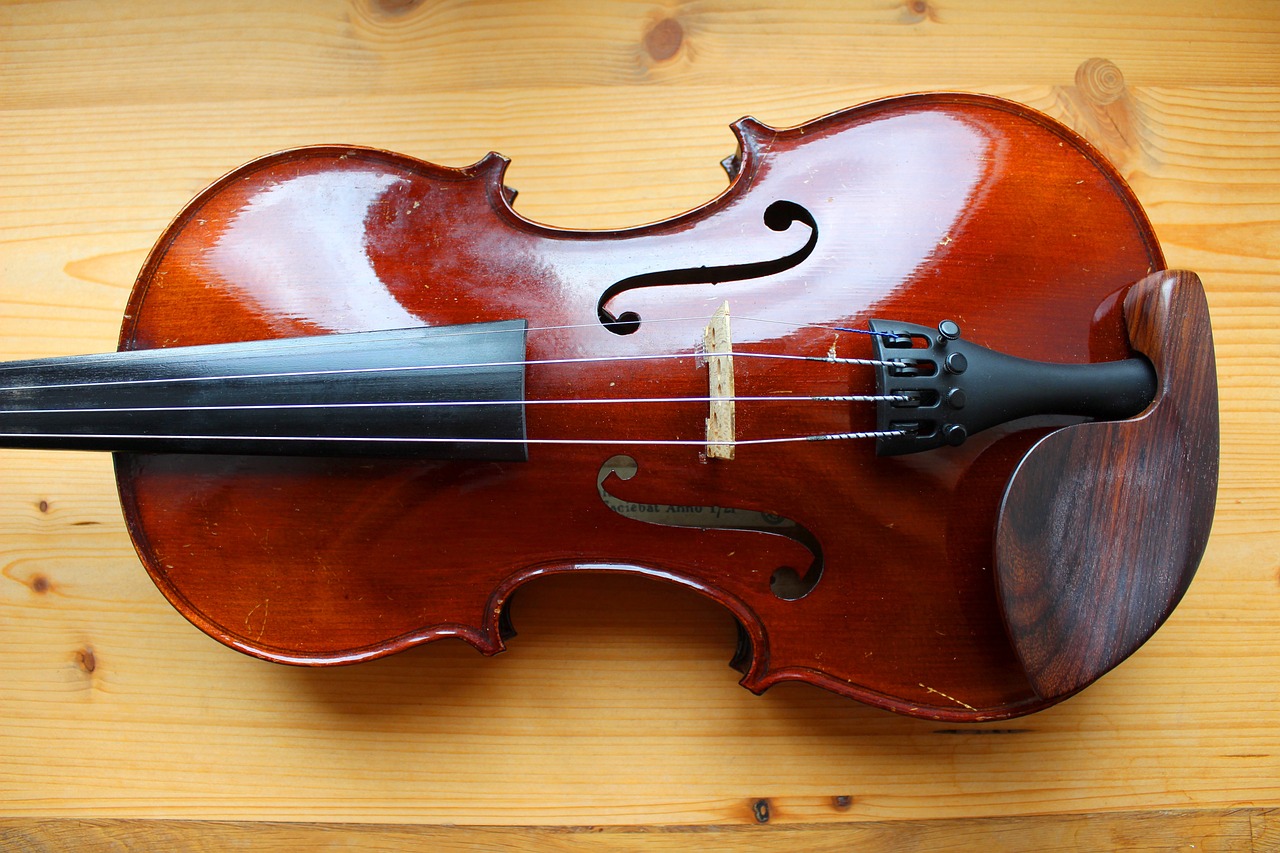
Bostrom’s Argument
Nick Bostrom, a philosopher at the University of Oxford, introduced a thought-provoking argument that has ignited discussions about the nature of our reality. He posits that if advanced civilizations possess the technological capability to create highly sophisticated simulations of their ancestors, it is statistically probable that we are living in one of those simulations. This claim rests on three core premises:
- Humanity's Technological Trajectory: Bostrom suggests that if humanity continues to advance technologically, we will eventually reach a point where we can create indistinguishable simulations of reality, complete with sentient beings.
- Desire for Simulation: There may be a strong motivation for these advanced civilizations to run simulations, whether for research, entertainment, or historical preservation.
- Probability of Being Simulated: If many simulations are created, the number of simulated realities could vastly outnumber the one base reality, leading to the conclusion that it’s more likely for us to be in a simulation than in the original reality.
Bostrom's argument challenges our understanding of existence and reality. It invites us to consider the implications of living in a world that might be a mere imitation of a more fundamental existence. Imagine walking through a beautifully crafted virtual landscape, where every detail is meticulously designed to evoke emotions and memories. What if, unbeknownst to us, this world is just a layer of code, a sophisticated program running on an advanced computer? The thought is both exhilarating and unsettling.
Furthermore, Bostrom's argument encourages a deeper inquiry into the nature of consciousness. If we are indeed living in a simulation, what does that say about our experiences, our emotions, and the very essence of our being? Are we simply characters in a grand narrative, or is there something more profound at play? This question leads us to reflect on our sense of self and the reality we perceive. The implications are vast and far-reaching, touching on ethics, philosophy, and even the future of technology.
In essence, Bostrom’s simulation argument serves as a philosophical lens through which we can examine our existence. It pushes the boundaries of conventional thought and invites us to ponder the nature of reality itself. As we dive deeper into this rabbit hole, we must ask ourselves: if we are living in a simulation, how does that change our understanding of life, purpose, and the universe at large?
- What is the simulation hypothesis? The simulation hypothesis suggests that reality as we know it could be an artificial simulation, similar to a highly advanced virtual reality.
- Who proposed Bostrom’s argument? Nick Bostrom, a philosopher, proposed this argument in his paper titled "Are You Living in a Computer Simulation?".
- What are the implications of living in a simulation? If we are in a simulation, it raises questions about consciousness, free will, and the nature of reality itself.
- How does technology relate to the simulation hypothesis? Advances in technology, particularly in virtual reality and artificial intelligence, make the creation of realistic simulations more plausible, supporting Bostrom's argument.
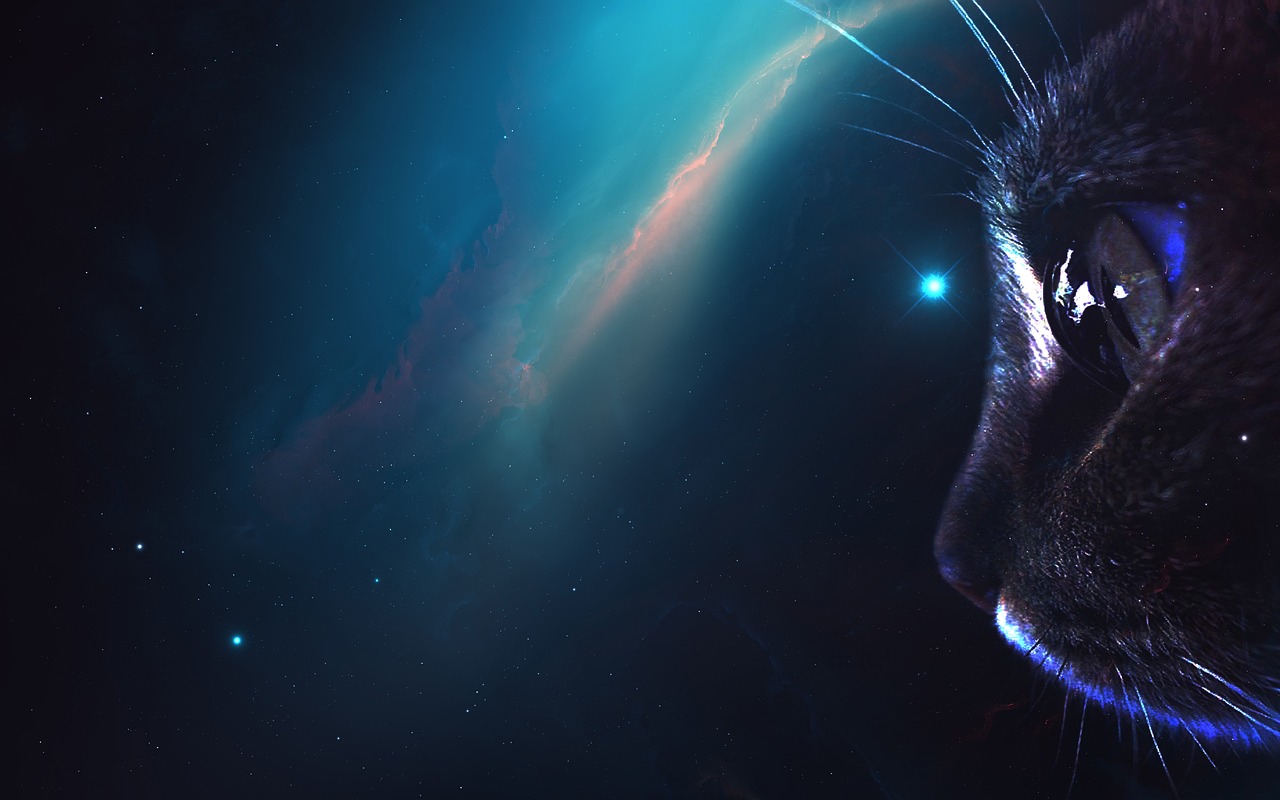
Scientific Theories
The notion that we might be living in a simulated universe isn't just a philosophical musing; it finds some intriguing support in various scientific theories. When we delve into the realms of quantum mechanics and the nature of consciousness, we begin to see patterns that could suggest our reality is not as straightforward as it seems. Imagine for a moment that the universe is akin to a complex video game, where the rules can be bent and the environment can be manipulated. This idea, while far-fetched at first glance, starts to gain traction when we examine the peculiarities of quantum mechanics.
Quantum mechanics reveals a world that behaves in ways that defy our everyday understanding. For instance, particles can exist in multiple states at once, a phenomenon known as superposition. This leads us to ponder: what if our perceived reality is merely a simulation where the rules of physics are programmed to behave in these bizarre ways? Consider the famous double-slit experiment, which demonstrates that particles can behave like both particles and waves, depending on whether or not they are being observed. This raises a fundamental question about the nature of reality: is it possible that observation itself is a trigger for a simulation to render a specific outcome?
Furthermore, the concept of entanglement—where particles become interconnected in such a way that the state of one instantly influences the state of another, regardless of distance—adds another layer of complexity. If our universe operates on principles that allow for such instantaneous connections, could it be that these are the result of a sophisticated simulation that transcends our conventional understanding of space and time? The implications are staggering and invite us to rethink the very fabric of our existence.
Then, we must consider the relationship between consciousness and reality. What if our awareness is not merely a byproduct of biological processes but rather a key component of a simulated environment? Some scientists argue that consciousness could be an emergent phenomenon, arising from complex systems interacting in ways we do not yet fully comprehend. This leads to the tantalizing possibility that our consciousness is not just a feature of our brains, but a vital element of the simulation itself. Are we, in essence, players in a grand cosmic game, where our awareness shapes the very reality we experience?
To illustrate these concepts further, let's look at a table summarizing key scientific theories that resonate with the idea of a simulated universe:
| Theory | Description | Relation to Simulation Hypothesis |
|---|---|---|
| Quantum Mechanics | Study of particles at the quantum level, exhibiting strange behaviors like superposition and entanglement. | Suggests reality may not be as fixed as it appears, potentially indicating a programmed environment. |
| Consciousness Studies | Exploration of how consciousness arises and functions within the human brain. | Raises questions about whether consciousness is a product of a simulation or an inherent aspect of reality. |
| Theoretical Physics | Investigates the fundamental laws governing the universe, including string theory and multiverse concepts. | Could imply that multiple realities exist, supporting the idea of simulated worlds. |
In conclusion, the scientific theories surrounding quantum mechanics and consciousness provide a fascinating backdrop to the discussion of whether we are living in a simulated universe. They challenge us to rethink our understanding of reality and push the boundaries of what we perceive as possible. As technology continues to advance, these theories may become even more relevant, urging us to explore the very essence of our existence and the nature of the universe.
- What is the simulation hypothesis? The simulation hypothesis proposes that reality could be a simulated construct, similar to a highly advanced video game.
- How does quantum mechanics relate to the idea of a simulated universe? Quantum mechanics reveals strange behaviors in particles that suggest our reality may not be as fixed as it appears, hinting at the possibility of a programmed environment.
- What role does consciousness play in this discussion? Consciousness may be a key component of a simulated environment, raising questions about whether our awareness shapes the reality we experience.
- Are there scientific theories that support the simulation hypothesis? Yes, theories in quantum mechanics, consciousness studies, and theoretical physics contribute to the discussion about the nature of reality and the possibility of simulations.

Quantum Mechanics
Quantum mechanics, often described as the bizarre realm of physics, challenges our conventional understanding of reality. Imagine a world where particles can exist in multiple states at once, only to collapse into a single state when observed. This peculiar behavior raises profound questions about the nature of existence itself. Could it be that the very fabric of our reality is woven from threads of uncertainty, much like a complex tapestry that only reveals its patterns when we gaze upon it? This notion aligns closely with the simulation hypothesis, suggesting that our perceived reality might be a mere projection of a deeper, underlying structure.
One of the most compelling aspects of quantum mechanics is the phenomenon known as quantum entanglement. When particles become entangled, the state of one particle instantly influences the state of another, regardless of the distance separating them. This instantaneous connection challenges our classical notions of space and time, leading to the question: if our reality is interconnected in such a mysterious way, could it be that we are part of a grander simulation orchestrated by an advanced intelligence?
Moreover, consider the implications of the observer effect, where the act of observation alters the state of a quantum system. This phenomenon suggests that reality is not a fixed entity but rather a fluid construct that shifts based on our perception. In a simulated universe, this could imply that our consciousness plays a pivotal role in shaping the reality we experience. Could it be that we are not merely passive observers, but active participants in a grand simulation, influencing the very outcomes of our existence?
To further illustrate the relationship between quantum mechanics and the simulation hypothesis, let's take a look at the following table:
| Quantum Concept | Description | Simulation Implication |
|---|---|---|
| Superposition | Particles exist in multiple states until measured. | Reality may be a construct that resolves into a single state upon observation. |
| Entanglement | Particles become linked, affecting each other instantaneously. | Indicates a deeper connection within a simulated framework. |
| Observer Effect | The act of observation changes the state of a quantum system. | Suggests consciousness may influence the simulation. |
As we delve deeper into the implications of quantum mechanics, it becomes evident that the lines between reality and simulation blur. The more we learn about the quantum world, the more we are compelled to consider the possibility that our universe is not just a random occurrence but rather a carefully crafted simulation. This idea may sound far-fetched, yet it encourages us to rethink our understanding of existence and our place within it. Are we merely players in a cosmic game, or is there a greater purpose behind the simulation we inhabit?
- What is the simulation hypothesis? The simulation hypothesis suggests that our reality might be an artificial simulation, similar to a highly advanced computer program.
- How does quantum mechanics relate to the simulation hypothesis? Quantum mechanics introduces concepts such as superposition and entanglement, which challenge our understanding of reality and suggest a deeper structure that may align with a simulated existence.
- Can consciousness influence reality? The observer effect in quantum mechanics suggests that our consciousness may play a role in shaping the reality we experience, indicating that we might actively participate in a simulated environment.
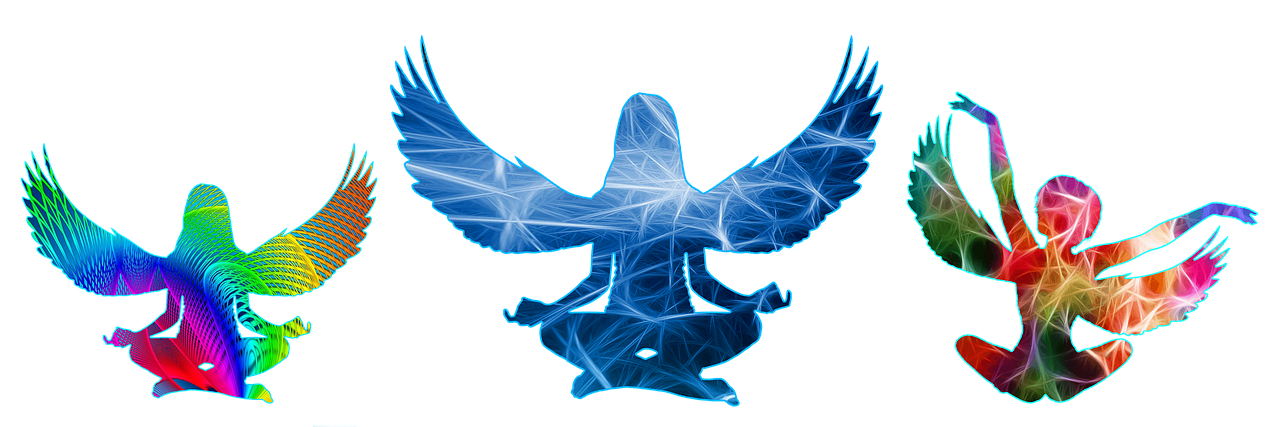
Consciousness and Reality
When we dive into the depths of consciousness, we’re not just peering into a personal experience; we’re exploring the very fabric of our existence. What if our awareness, our sense of self, is merely a byproduct of a larger, perhaps simulated, reality? This question has sparked countless debates among philosophers, scientists, and curious minds alike. Imagine consciousness as a complex tapestry woven from threads of perception, memory, and sensation. Each thread contributes to the overall picture of who we are, yet what if this picture is painted by an unseen hand?
Consider the relationship between consciousness and reality as a dance; one moves in response to the other, creating an intricate interplay. If our reality is a simulation, then our consciousness could be the program running within it, processing inputs and outputs in a way that feels entirely real. This leads us to ponder: Are we truly aware of what we perceive, or are we simply reacting to stimuli designed by a higher intelligence? The implications of this are profound, shaking the very foundations of how we understand existence.
Recent studies in neuroscience have begun to unravel the mysteries of consciousness, revealing that our brains are not just passive receivers of information but active participants in shaping our reality. For instance, the brain's ability to interpret sensory data and construct a coherent narrative suggests that our perception is not an objective reflection of the world around us but rather a subjective experience influenced by various factors, including our beliefs, emotions, and even the context in which we find ourselves.
To illustrate this further, let’s consider the concept of a simulated environment. Imagine you’re wearing a virtual reality headset, fully immersed in a digital world. Your brain processes the visuals and sounds, creating a sense of presence within that space. Now, if we were to extrapolate this experience to our everyday lives, could it be possible that we are also wearing a metaphorical headset, perceiving a reality that is, in fact, a simulation? This analogy raises intriguing questions about the nature of consciousness:
- Are our thoughts and feelings genuine, or are they programmed responses?
- How much of our reality is shaped by external influences versus our internal consciousness?
- What happens to our sense of self if we are indeed living in a simulation?
Moreover, the idea that consciousness itself could be simulated opens up a whole new realm of possibilities. If advanced civilizations can create lifelike simulations, could they also engineer consciousness within those simulations? This thought leads us to the ethical implications of such technologies. If we were to create conscious beings within a simulated environment, what responsibilities would we hold towards them? Would they possess the same rights as beings in our ‘real’ world? These questions challenge our understanding of morality and existence.
In conclusion, the relationship between consciousness and reality is a complex and fascinating topic that invites us to question everything we know. Whether we are living in a simulation or not, the exploration of this relationship offers profound insights into the nature of our existence. As we continue to advance in technology and understanding, we may find ourselves closer to unraveling the mystery of whether our consciousness is merely a product of a grand design or a genuine reflection of reality itself.
- What is the simulation hypothesis? The simulation hypothesis suggests that our reality might be an artificial construct, similar to a computer simulation.
- What role does consciousness play in our perception of reality? Consciousness shapes our experiences and interpretations of the world, influencing how we perceive reality.
- Can consciousness be simulated? Theoretically, if advanced technology allows for the creation of lifelike simulations, consciousness could potentially be replicated within those environments.
- What are the ethical implications of creating conscious simulations? Creating conscious beings in simulations raises questions about their rights and our responsibilities towards them.

Technological Advancements
As we stand on the brink of an unprecedented technological revolution, the idea that we might be living in a simulated universe becomes increasingly plausible. The rapid advancements in technology, particularly in fields like virtual reality (VR) and artificial intelligence (AI), are challenging our traditional notions of reality and existence. These technologies are not just tools; they are gateways that could lead us to question the very fabric of our perceived world.
Take virtual reality, for instance. With the development of immersive VR experiences, we can now create environments that feel incredibly real. Imagine slipping on a headset and being transported to a breathtaking mountain range or a bustling cityscape, all while sitting in your living room. The lines between what's real and what's simulated begin to blur. As these technologies evolve, we could soon find ourselves in simulations so lifelike that distinguishing them from reality becomes nearly impossible. This raises an intriguing question: if we can create such convincing simulations, what’s stopping a more advanced civilization from doing the same?
Moreover, advancements in artificial intelligence are adding another layer to this discussion. AI systems are becoming increasingly sophisticated, capable of learning, adapting, and even creating content that mimics human behavior. This begs the question: if AI can create lifelike simulations of reality, could our own consciousness be an advanced AI simulation? As we develop AI that can interact with us in seemingly human ways, the ethical implications also come into play. Are we prepared to confront the reality of creating beings that may one day possess their own consciousness?
To further illustrate the impact of these technological advancements, consider the following table that summarizes key developments in VR and AI:
| Technology | Recent Developments | Implications |
|---|---|---|
| Virtual Reality | High-resolution displays, haptic feedback, and motion tracking | Blurs the line between real and virtual experiences |
| Artificial Intelligence | Deep learning, natural language processing, and generative models | Potential to create lifelike simulations and ethical dilemmas |
As we delve deeper into these technologies, we must also consider the ethical responsibilities that come with them. If we are indeed on the path to creating our own simulated realities, we must ask ourselves: what are the moral implications of such power? Are we ready to grapple with the consequences of creating a reality that can be manipulated at will?
In conclusion, the advancements in technology are not merely tools for entertainment or convenience; they are catalysts for profound philosophical inquiries. As we continue to explore the boundaries of virtual reality and artificial intelligence, we inch closer to the possibility that our own reality might be a complex simulation. The journey into understanding the nature of our existence is just beginning, and it promises to be as thrilling as it is unsettling.
- What is the simulation hypothesis? The simulation hypothesis suggests that our reality might be an artificial construct, similar to a computer simulation.
- How does virtual reality relate to the simulation hypothesis? Virtual reality creates immersive experiences that can blur the lines between real and simulated environments, prompting questions about the nature of reality.
- What role does artificial intelligence play in this discussion? AI advancements may allow for the creation of lifelike simulations, raising ethical concerns and questions about consciousness.
- Are there any philosophical arguments supporting the simulation hypothesis? Yes, philosophers like René Descartes and Nick Bostrom have proposed arguments that challenge our understanding of reality and existence.
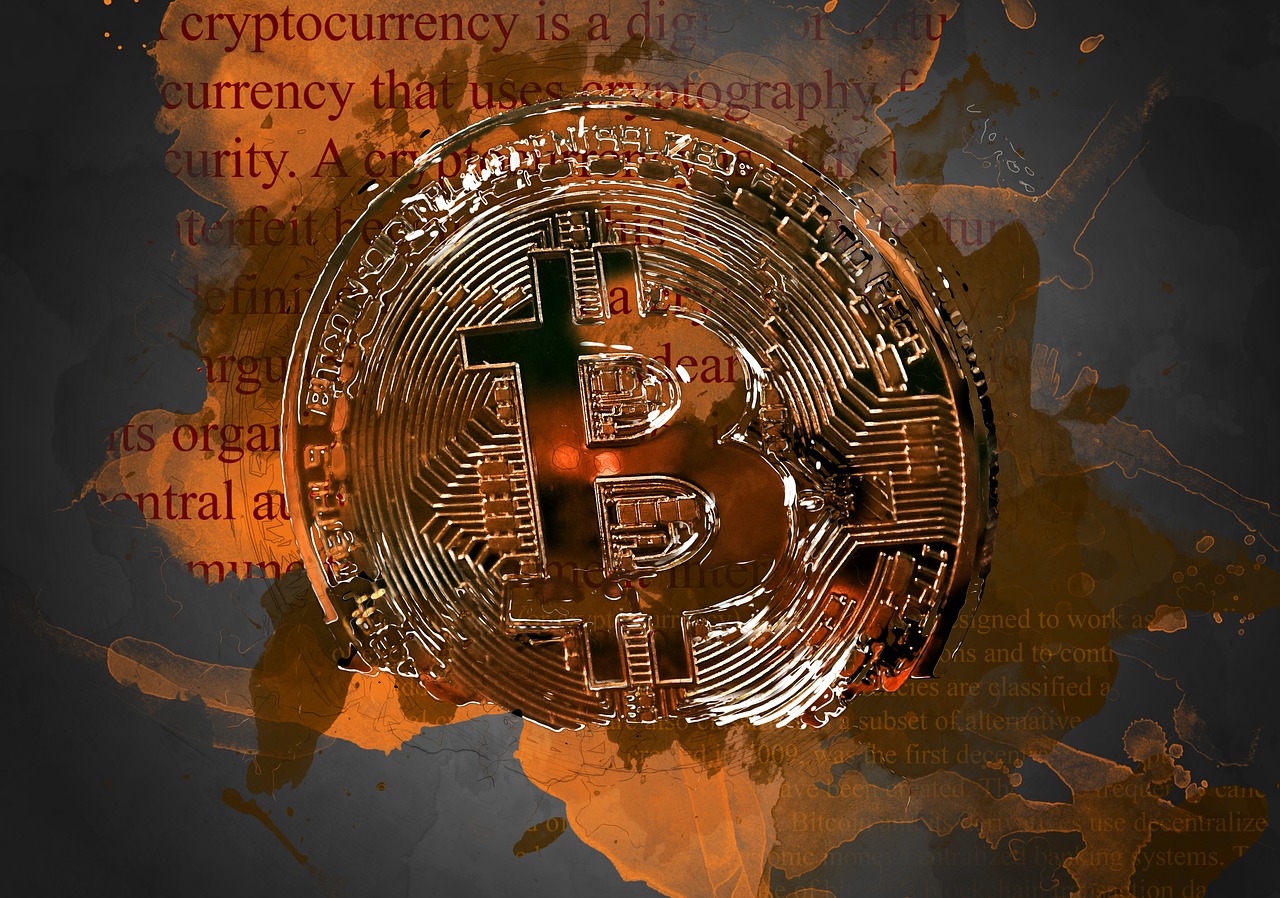
Virtual Reality Developments
Virtual reality (VR) has come a long way since its inception, evolving from rudimentary simulations to highly immersive environments that challenge our perceptions of reality. Imagine slipping on a headset and being transported to a world where the boundaries of the physical universe seem to dissolve. This leap in technology has not only captured the imagination of gamers but has also sparked discussions about the nature of existence itself. As we navigate through these virtual landscapes, we must ask ourselves: are we merely spectators in a grand simulation?
Recent advancements in VR technology have made it possible to create experiences that are strikingly lifelike. The introduction of haptic feedback systems allows users to feel sensations that mimic real-world interactions, enhancing the sense of presence in these digital realms. For instance, when you reach out to touch a virtual object, the feedback you receive can trick your brain into believing that the object is truly there. This blurring of lines between reality and simulation raises profound questions about the nature of our experiences.
Moreover, the development of social VR platforms has transformed how we interact with others in virtual spaces. Platforms like VRChat and AltspaceVR enable users to engage with friends and strangers in a shared environment, fostering a sense of community that transcends geographical boundaries. As we collaborate and communicate in these immersive settings, one can't help but ponder: if our interactions can occur in a simulated world, what does that say about the authenticity of our relationships in the physical realm?
To illustrate the rapid evolution of VR technology, consider the following table that outlines significant milestones in its development:
| Year | Development | Impact |
|---|---|---|
| 1968 | First Head-Mounted Display | Laid the groundwork for future VR technologies. |
| 1991 | SEGA VR | First commercial VR headset for gaming, though it never launched. |
| 2012 | Oculus Rift Kickstarter | Revitalized interest in VR, leading to widespread development. |
| 2020 | Standalone VR Headsets | Increased accessibility and user-friendliness, such as Oculus Quest. |
As we witness these developments, we must also consider the ethical implications of virtual reality. What happens when the lines between our physical existence and virtual experiences continue to blur? Are we risking our grasp on what is real? With the potential for VR to create experiences that are indistinguishable from reality, we face questions about identity, morality, and the essence of human experience. Will we prioritize virtual interactions over genuine connections, leading to a society that prefers the comfort of simulations over the unpredictability of real life?
In conclusion, virtual reality is not just a technological marvel; it is a profound exploration of what it means to exist. As we continue to delve into these digital domains, we must remain vigilant about the implications of our choices. Are we ready to embrace a world where reality and simulation coexist, or will we cling to the tangible world we know? Only time will tell.
- What is virtual reality?
Virtual reality is a simulated experience that can mimic or enhance the real world, often using headsets and other technologies to create immersive environments.
- How does virtual reality impact our perception of reality?
VR can alter our perception by providing experiences that feel real, prompting us to question the authenticity of our physical interactions.
- Are there ethical concerns with the rise of virtual reality?
Yes, as VR technology advances, ethical questions arise regarding identity, relationships, and the potential for addiction to virtual experiences.
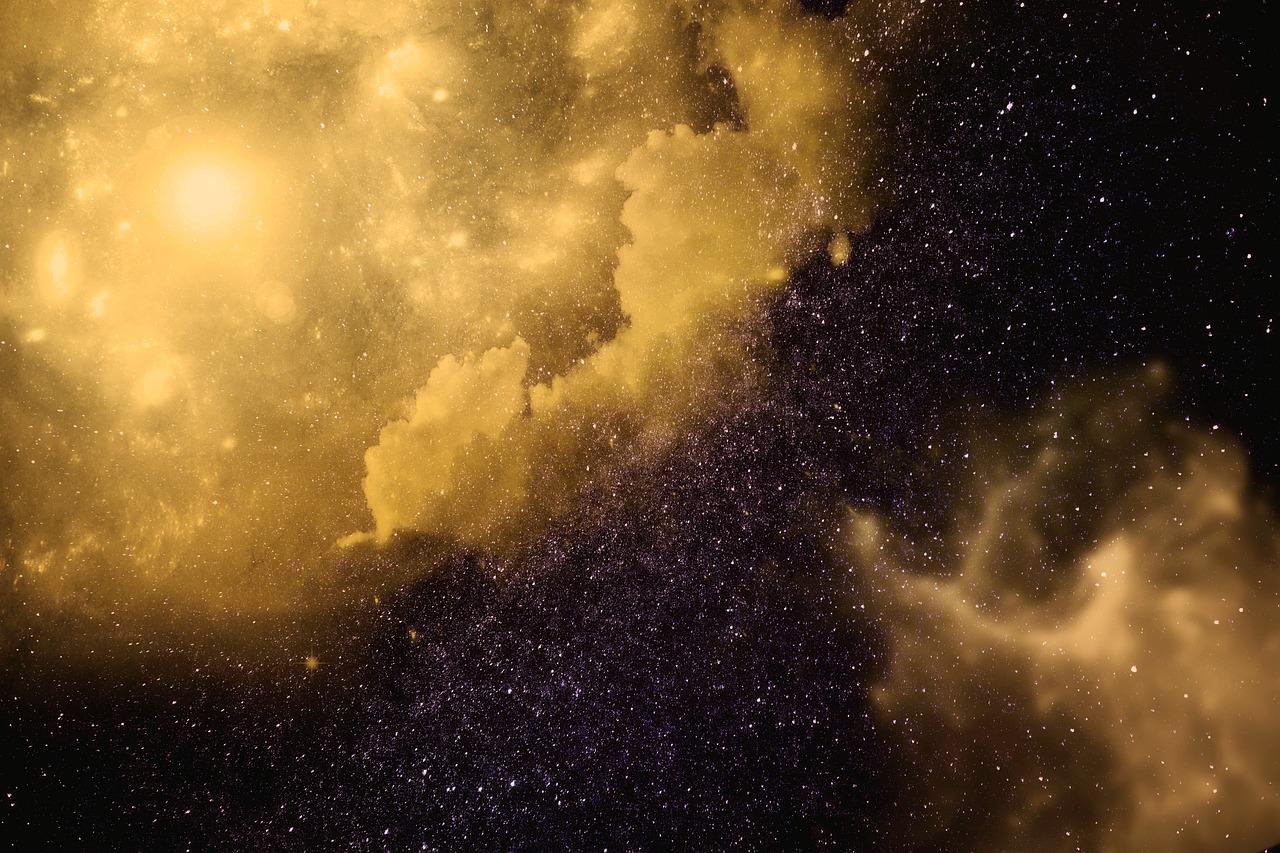
Artificial Intelligence
As we plunge deeper into the realms of technology, artificial intelligence (AI) stands out as a pivotal player in the ongoing debate about whether we are living in a simulated universe. Imagine a world where machines can think, learn, and adapt—this is not just science fiction anymore, but a reality that is reshaping our understanding of existence itself. AI has the potential to create simulations that are indistinguishable from reality, leading us to ponder: if we can create such lifelike experiences, what does that say about the reality we currently inhabit?
One of the most fascinating aspects of AI is its ability to generate dynamic environments that can mimic real-life scenarios. For instance, advanced AI algorithms can analyze vast amounts of data to create virtual worlds that respond to user interactions in real-time. This raises an intriguing question: if we can create simulations that feel real, could it be possible that our own reality is just a more sophisticated version of such simulations? The lines between what is real and what is artificially constructed begin to blur, prompting us to consider the implications of AI on our perception of reality.
Furthermore, the ethical implications of AI in creating lifelike simulations cannot be ignored. As AI technology advances, we must confront questions about consciousness and identity. If an AI can simulate human emotions and behaviors convincingly, does it mean that our own emotions and experiences are merely programmed responses? This notion challenges the very essence of what it means to be human. We might find ourselves in a situation where distinguishing between a sentient being and a highly advanced AI becomes increasingly difficult. The following table outlines some key distinctions and overlaps between human consciousness and AI-generated experiences:
| Aspect | Human Consciousness | AI-Generated Experience |
|---|---|---|
| Emotional Depth | Rich and varied emotions | Simulated emotional responses |
| Self-Awareness | Understanding of self and existence | Programmed self-reference |
| Learning Ability | Intuitive and experiential learning | Algorithmic learning |
| Ethical Considerations | Personal ethics and morality | Predefined ethical frameworks |
As we navigate these complex questions, we must also consider the potential for AI to enhance our understanding of reality. Imagine a future where AI could help us explore the universe in ways we never thought possible. It might even lead us to discover whether our reality is indeed a simulation or something far more profound. The role of AI in this exploration is not just about creating virtual experiences; it's about pushing the boundaries of what we know about existence itself.
In conclusion, as AI continues to evolve, it challenges our perceptions and compels us to reevaluate the nature of our reality. Could it be that we are merely players in a grand simulation, orchestrated by advanced intelligences? The implications are not just philosophical but also deeply personal, affecting how we view ourselves and the world around us.
- What is the simulation hypothesis? The simulation hypothesis suggests that our reality might be an artificial construct, similar to a computer simulation.
- How does AI relate to the simulation hypothesis? AI has the potential to create incredibly realistic simulations, leading us to question whether our own reality could be a sophisticated simulation.
- What are the ethical concerns surrounding AI? As AI becomes more advanced, questions arise about consciousness, identity, and the moral implications of creating lifelike simulations.
- Can we prove we are living in a simulation? Currently, there is no definitive proof, but various philosophical and scientific arguments suggest it is a possibility worth exploring.
Frequently Asked Questions
- What is the simulation hypothesis?
The simulation hypothesis suggests that our reality might be an artificial construct, similar to a computer simulation. It raises intriguing questions about the nature of existence and whether we can trust our perceptions of reality.
- Who proposed the simulation argument?
Nick Bostrom, a philosopher, is well-known for his simulation argument. He posits that if advanced civilizations can create realistic simulations, it’s statistically likely that we are living in one of those simulations.
- How does Descartes' skepticism relate to the simulation hypothesis?
René Descartes' skepticism, particularly his idea of an 'evil demon' manipulating our perceptions, parallels modern discussions of simulations. It challenges us to question the reliability of our senses and whether what we experience is genuinely real.
- What role does quantum mechanics play in this discussion?
Quantum mechanics introduces strange phenomena that suggest a deeper structure to reality. Some theorists argue that the behavior of particles at the quantum level might indicate the presence of an underlying simulation.
- Can advancements in technology support the simulation hypothesis?
Absolutely! As technology progresses, particularly in virtual reality and artificial intelligence, the lines between real and simulated experiences become increasingly blurred, fueling the debate about the nature of our reality.
- What ethical concerns arise from the possibility of living in a simulation?
Living in a simulated universe raises ethical questions about free will, consciousness, and the responsibilities of those who might create or control such simulations. It prompts us to consider the implications of creating lifelike experiences for sentient beings.
- Is there any scientific evidence supporting the simulation hypothesis?
While there is no definitive scientific evidence proving the simulation hypothesis, certain interpretations of quantum mechanics and consciousness studies suggest that our understanding of reality may not be as straightforward as we think.
- How does artificial intelligence contribute to the idea of a simulated universe?
Artificial intelligence plays a significant role in creating realistic simulations. As AI technology advances, it challenges our understanding of consciousness and raises questions about the authenticity of experiences within a simulation.


